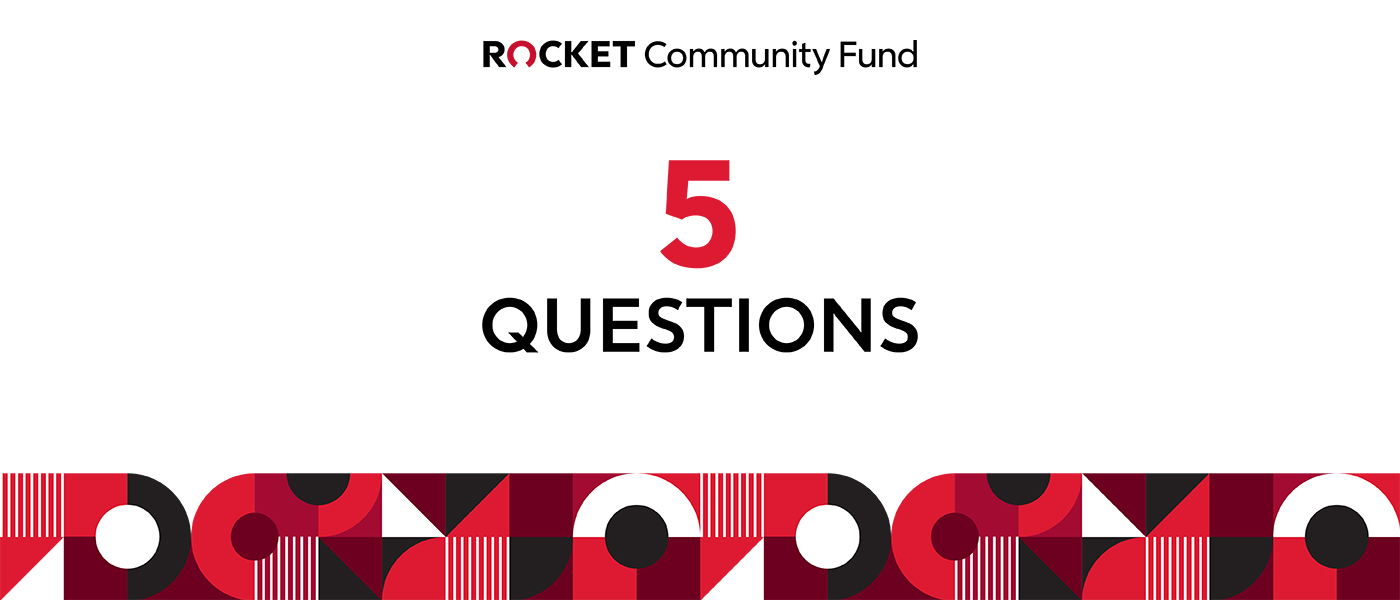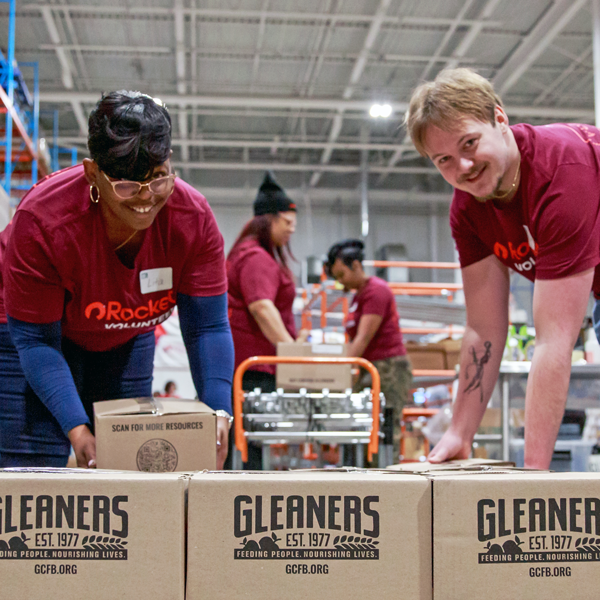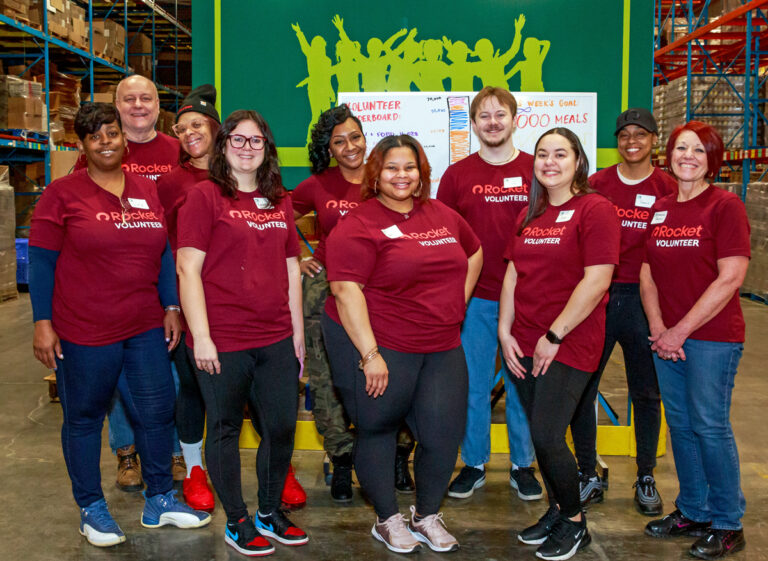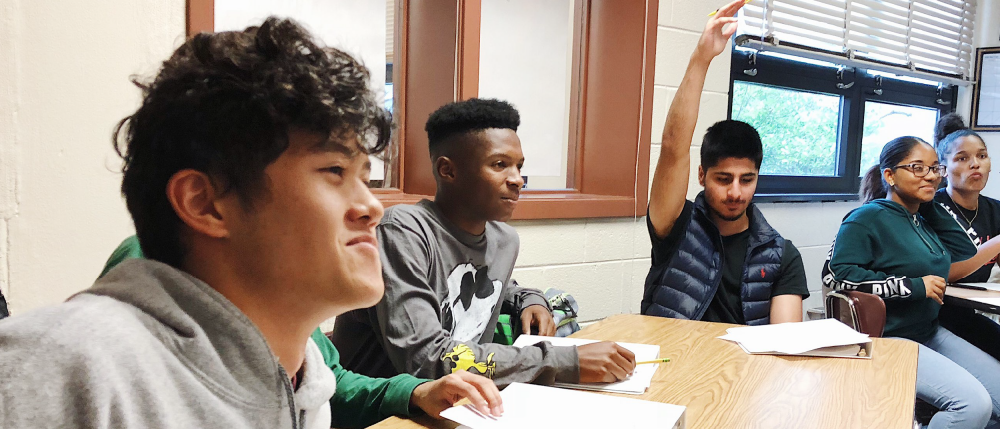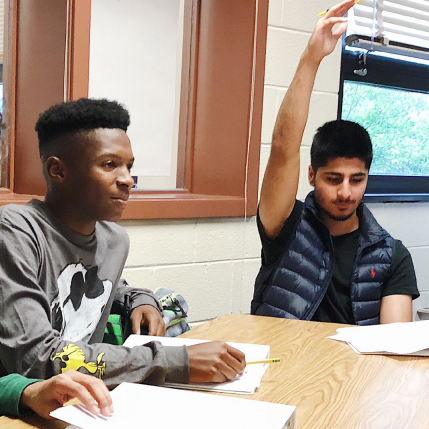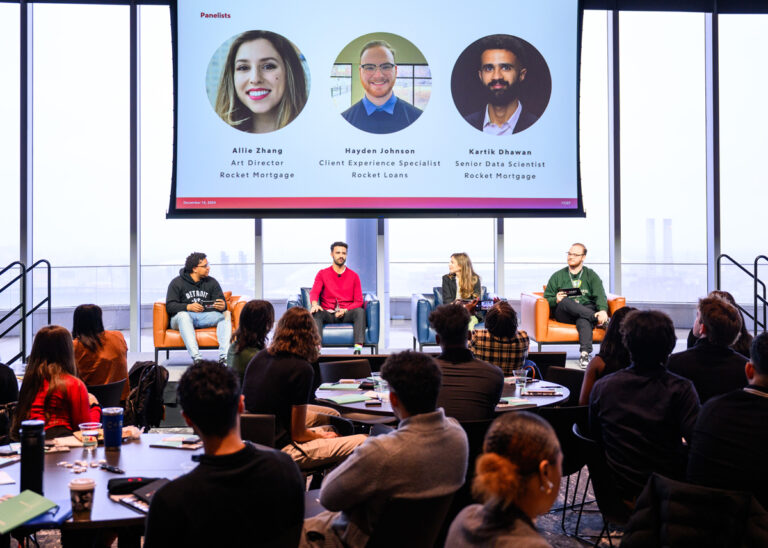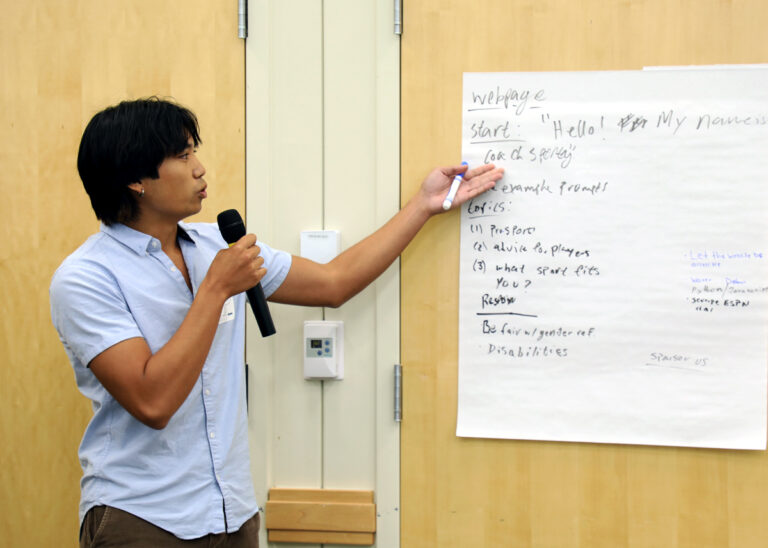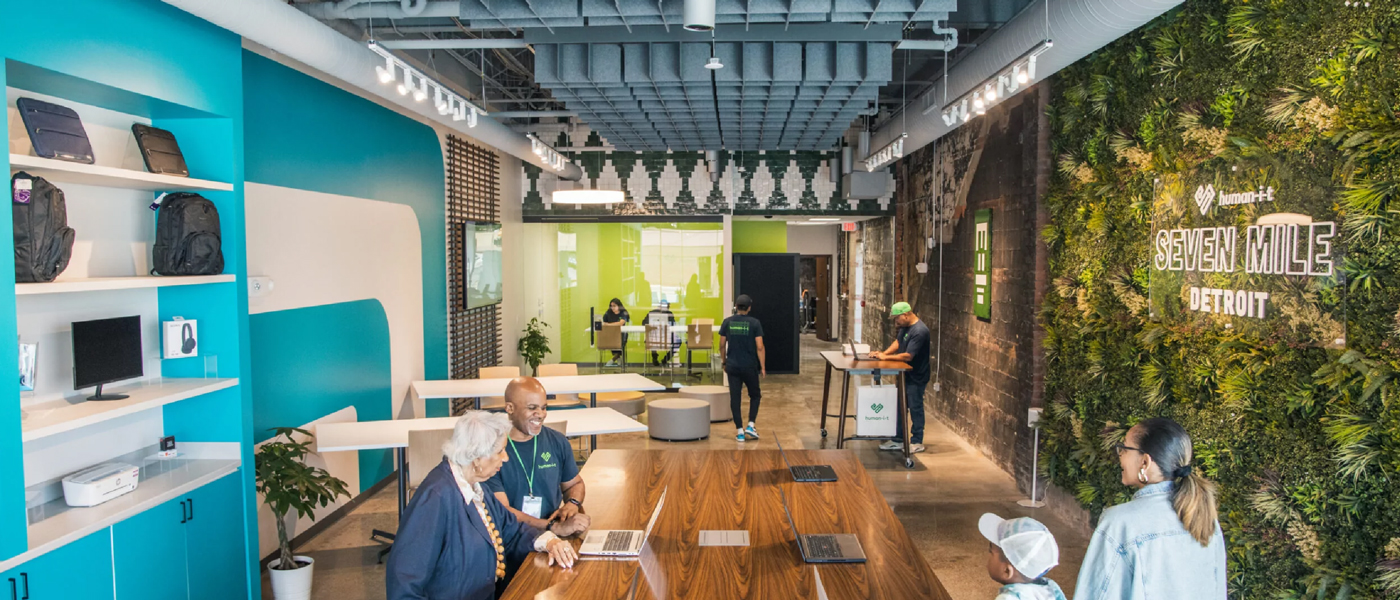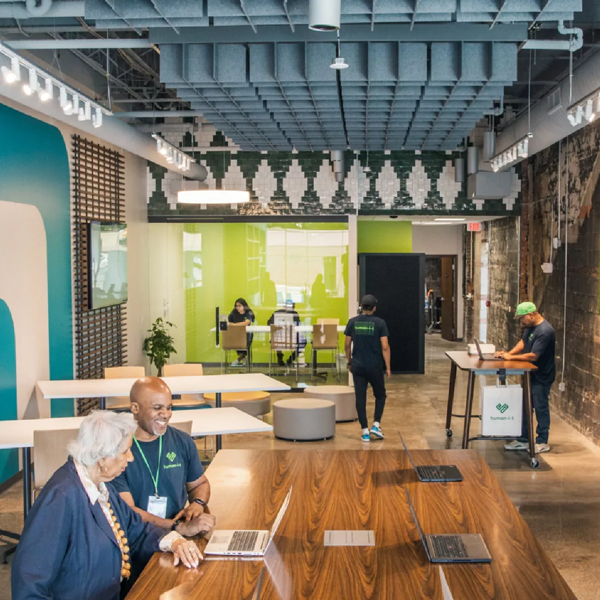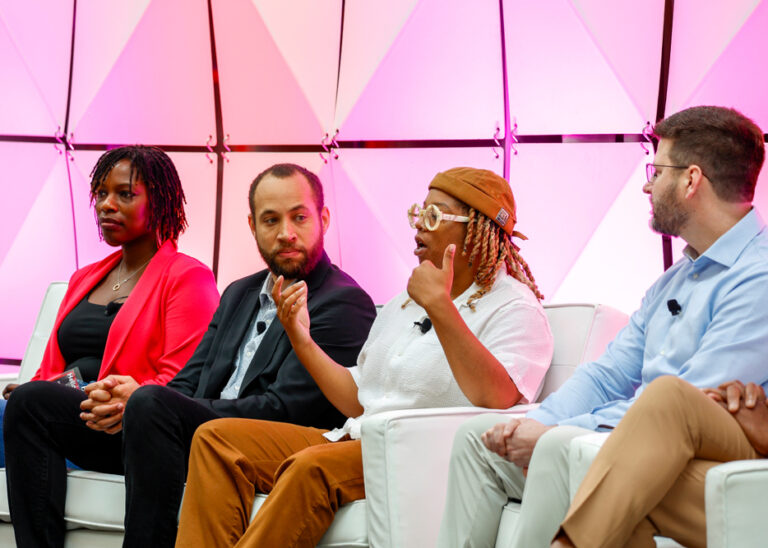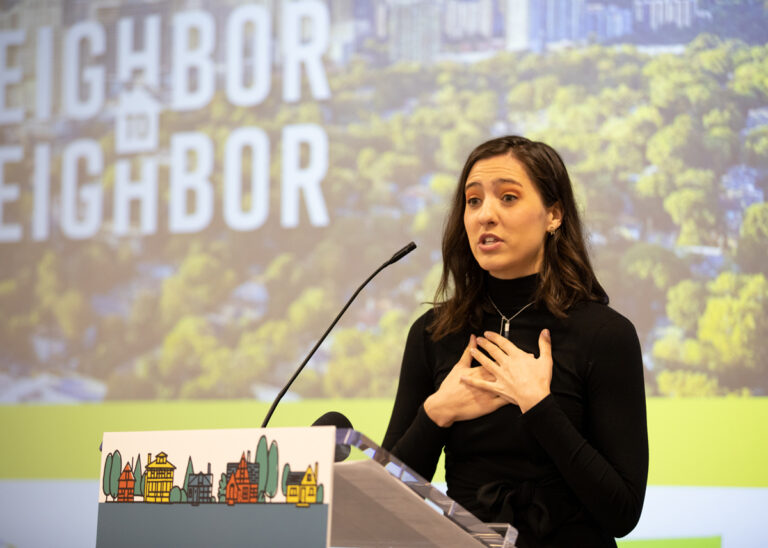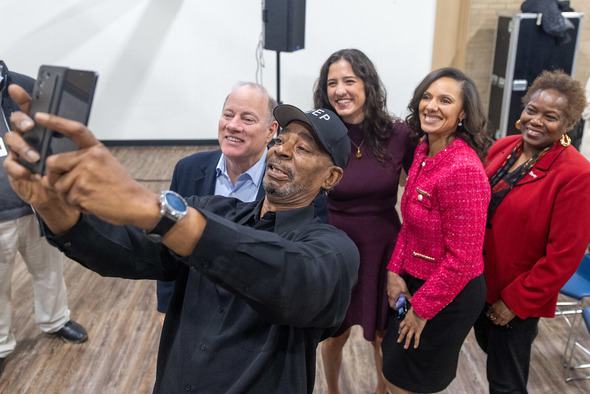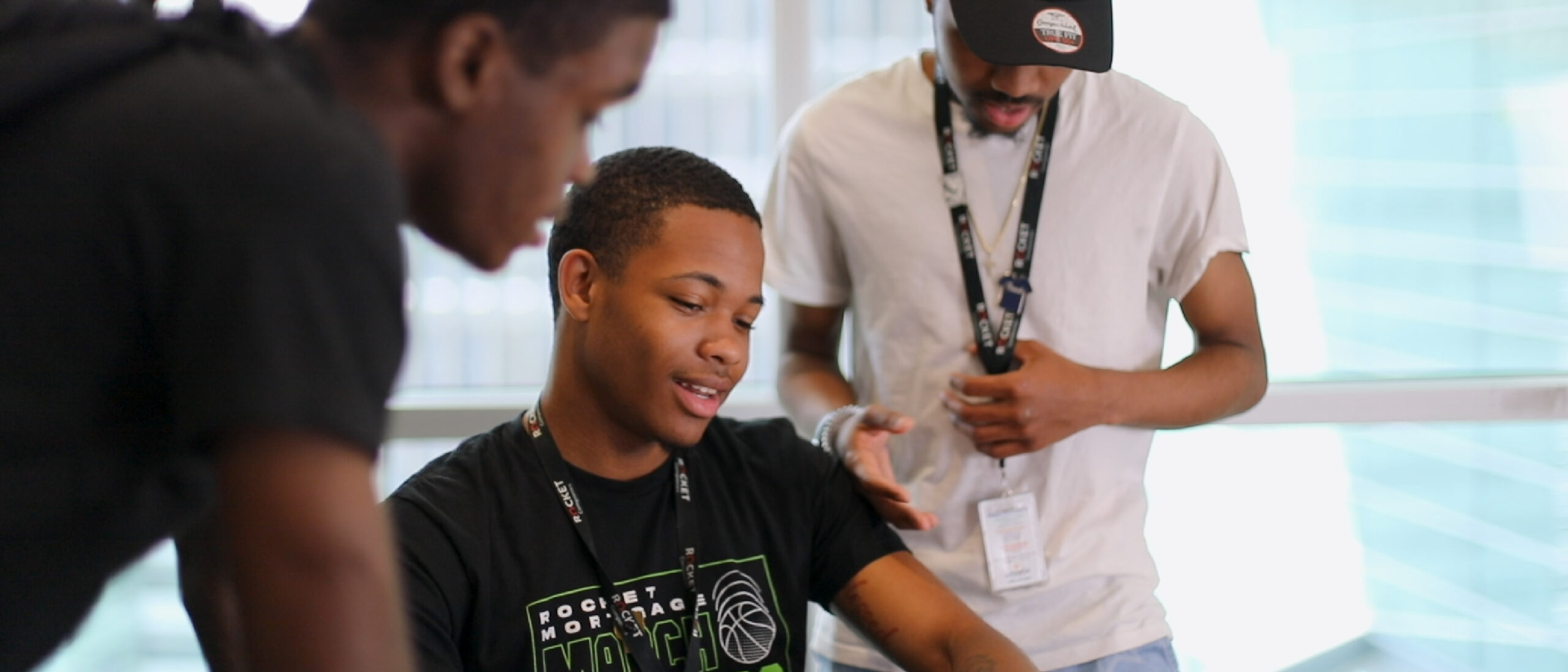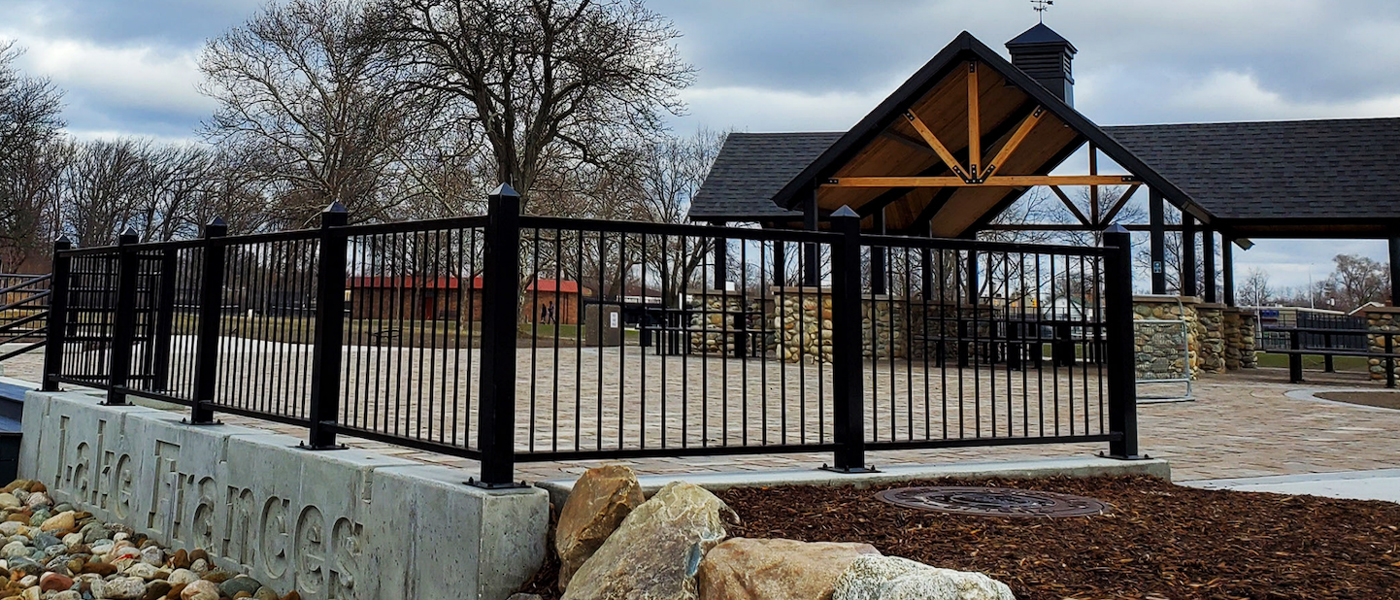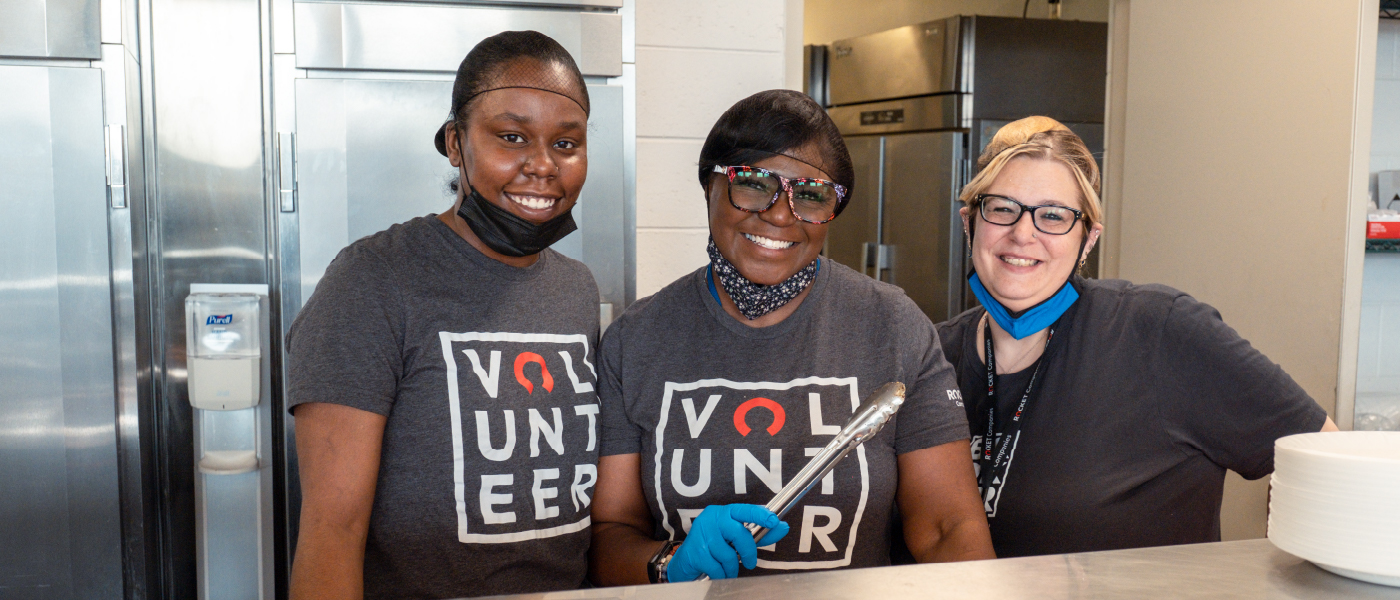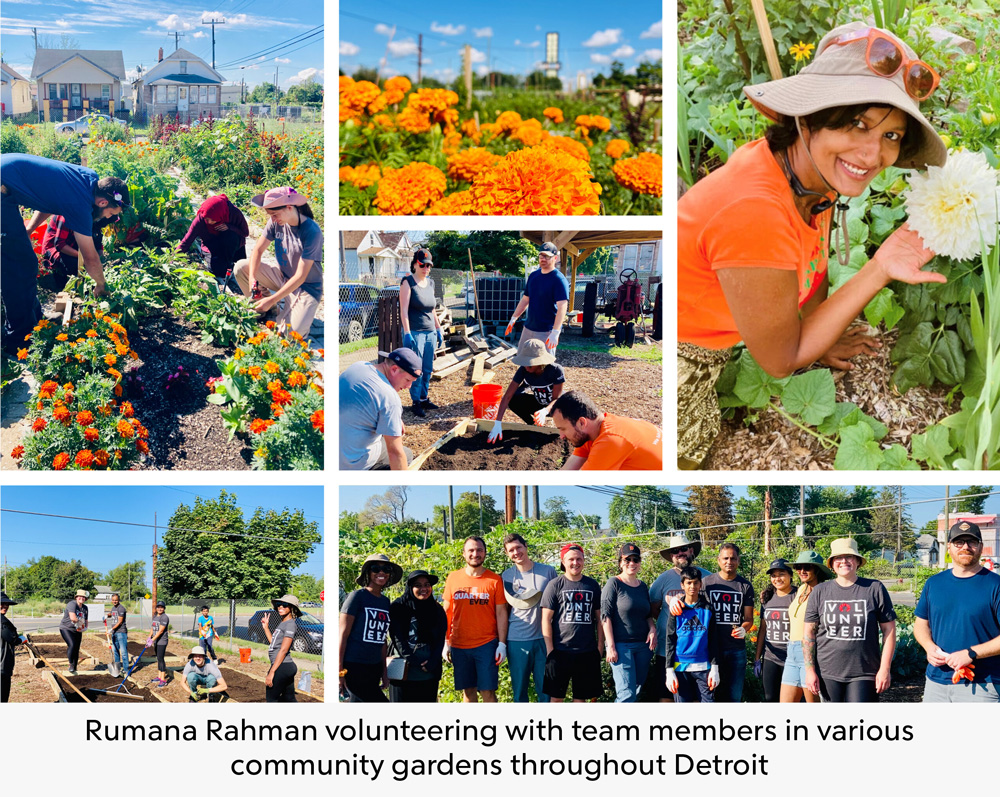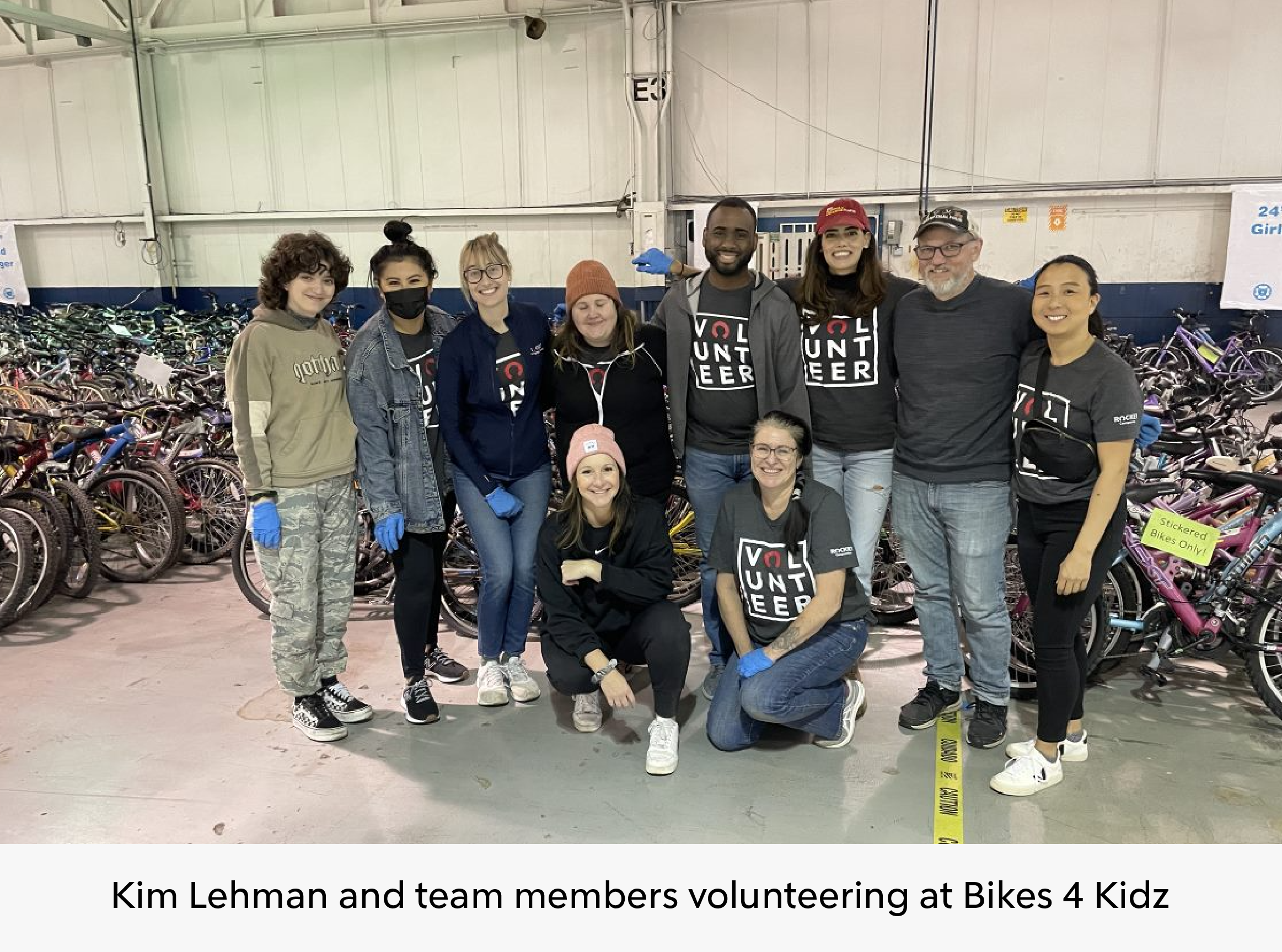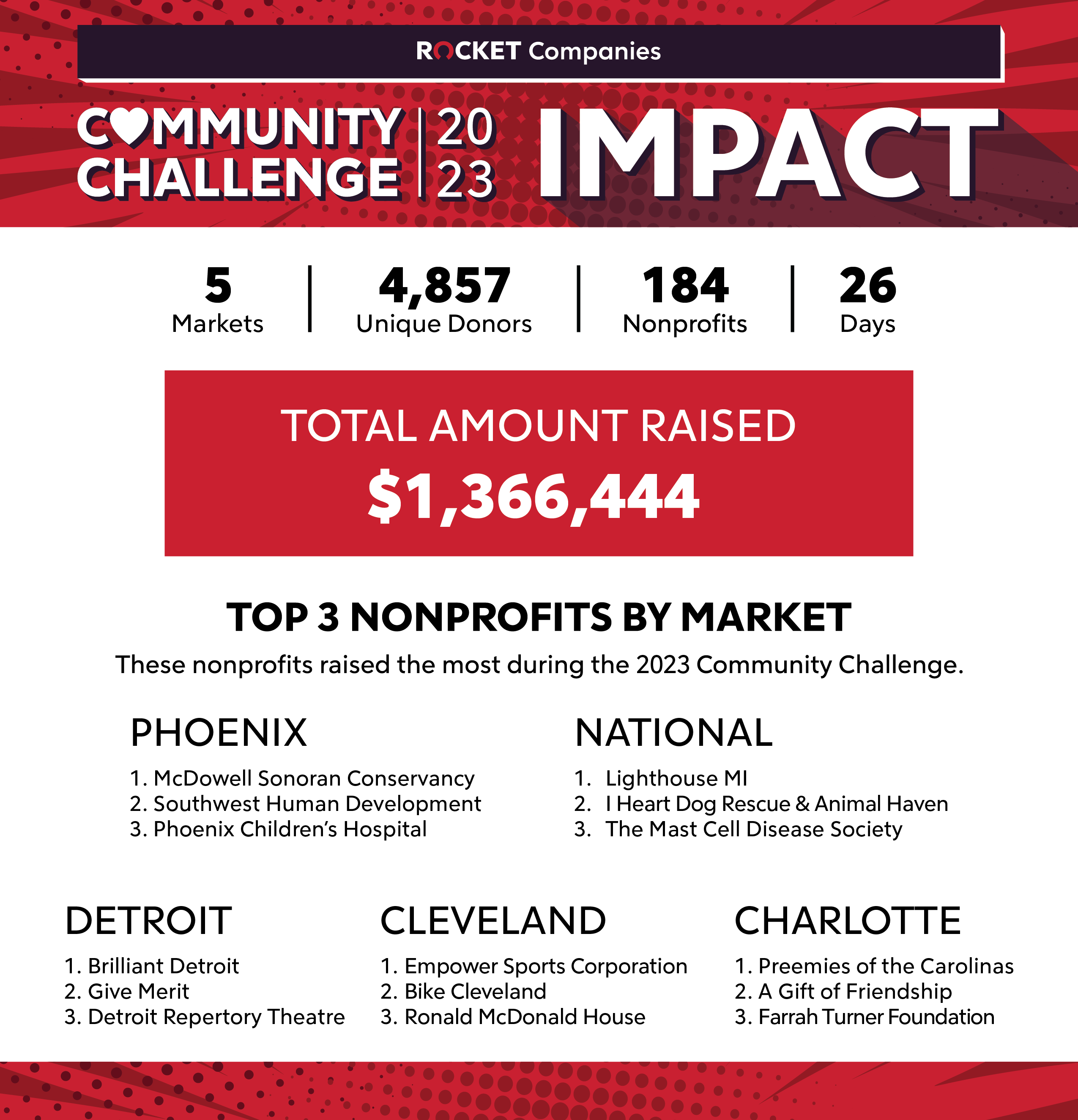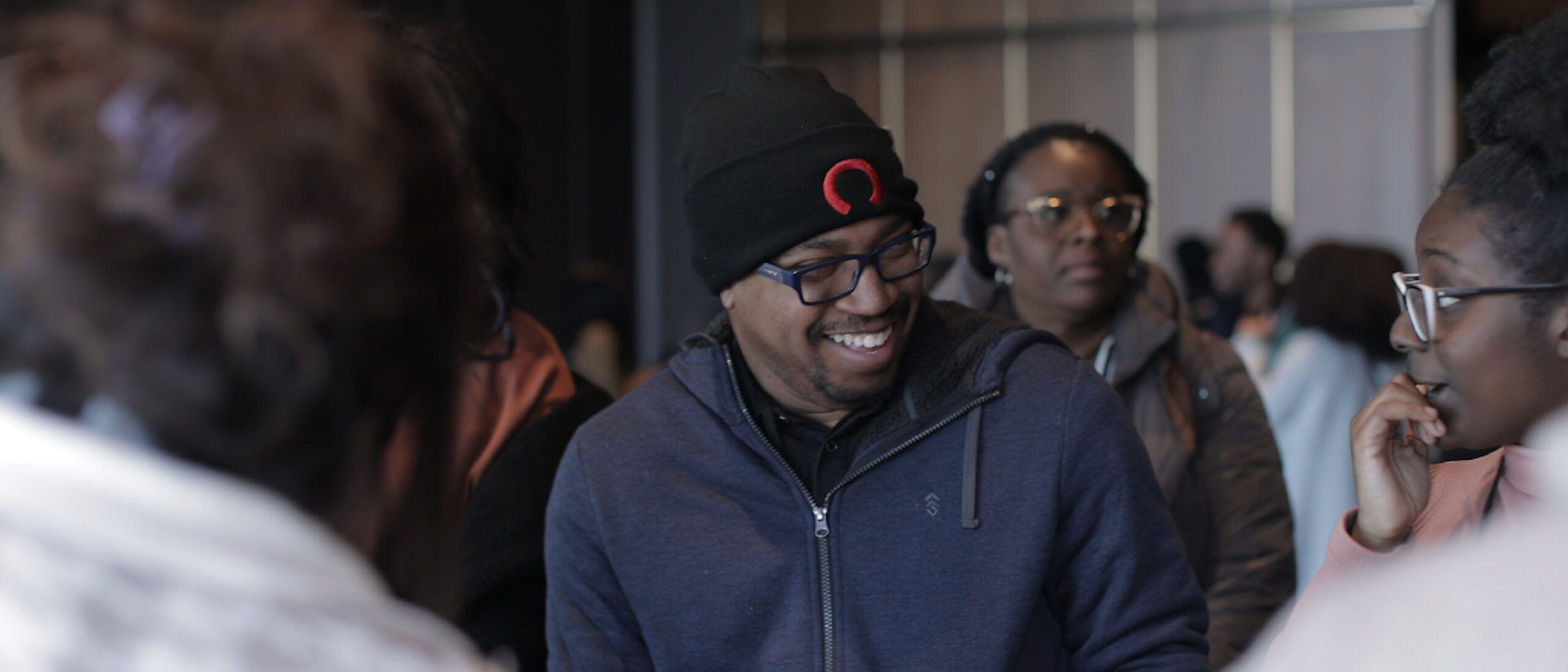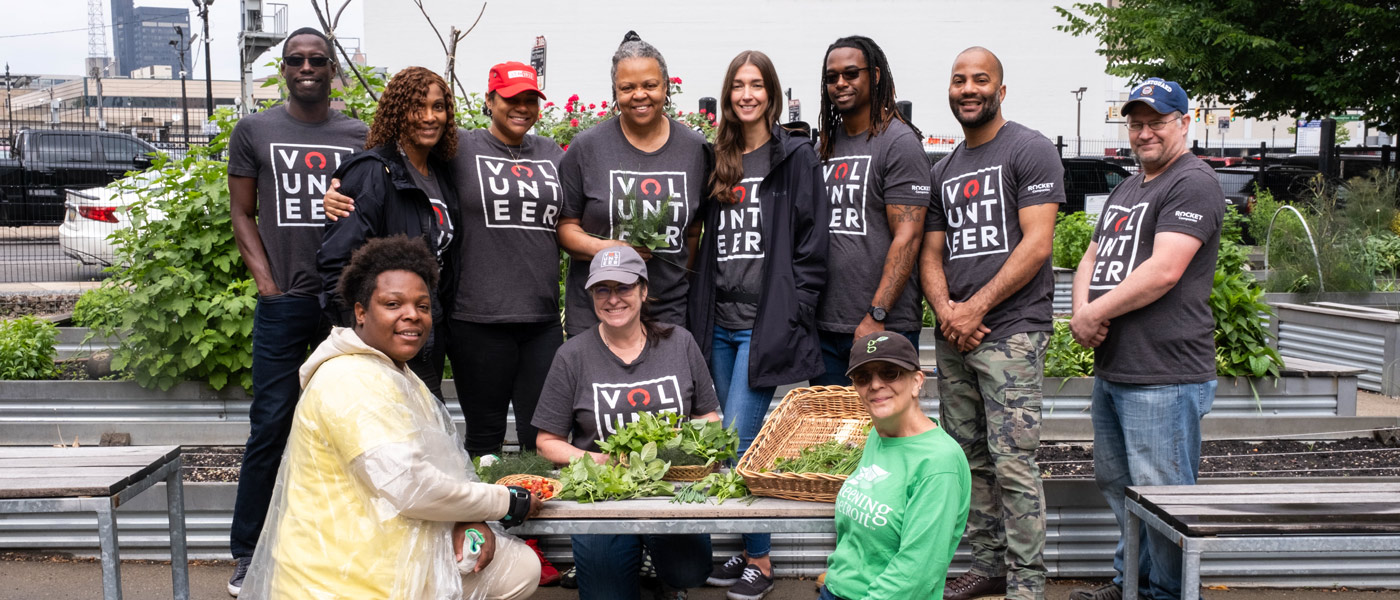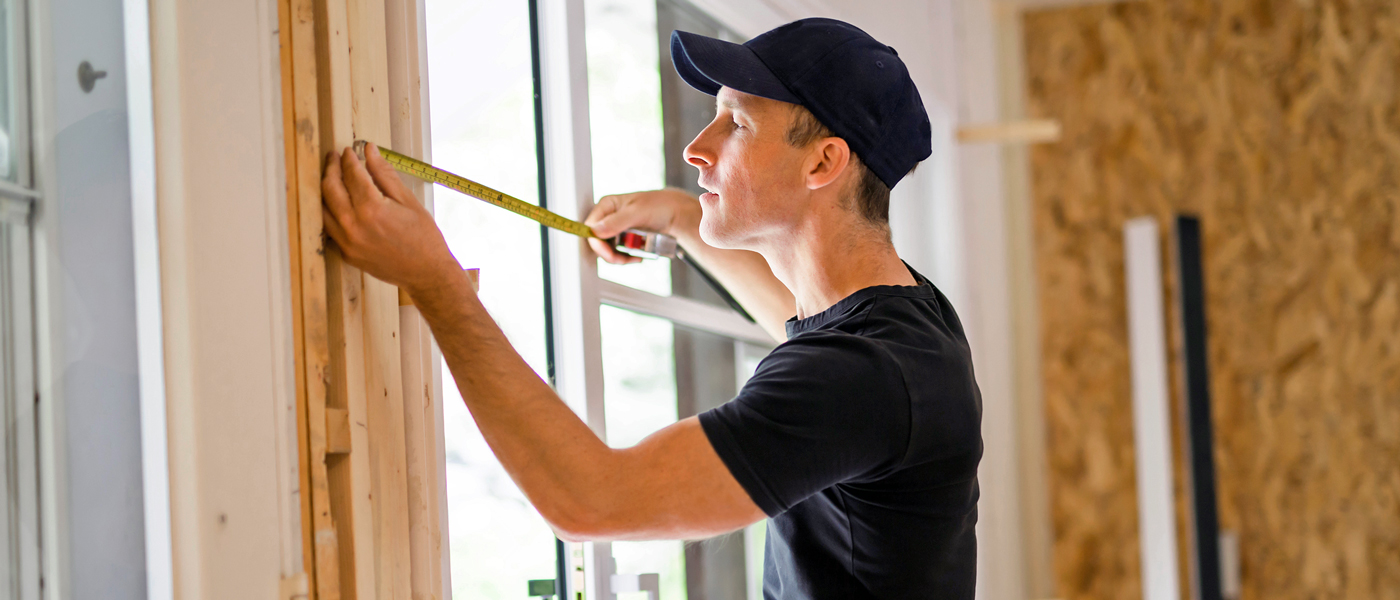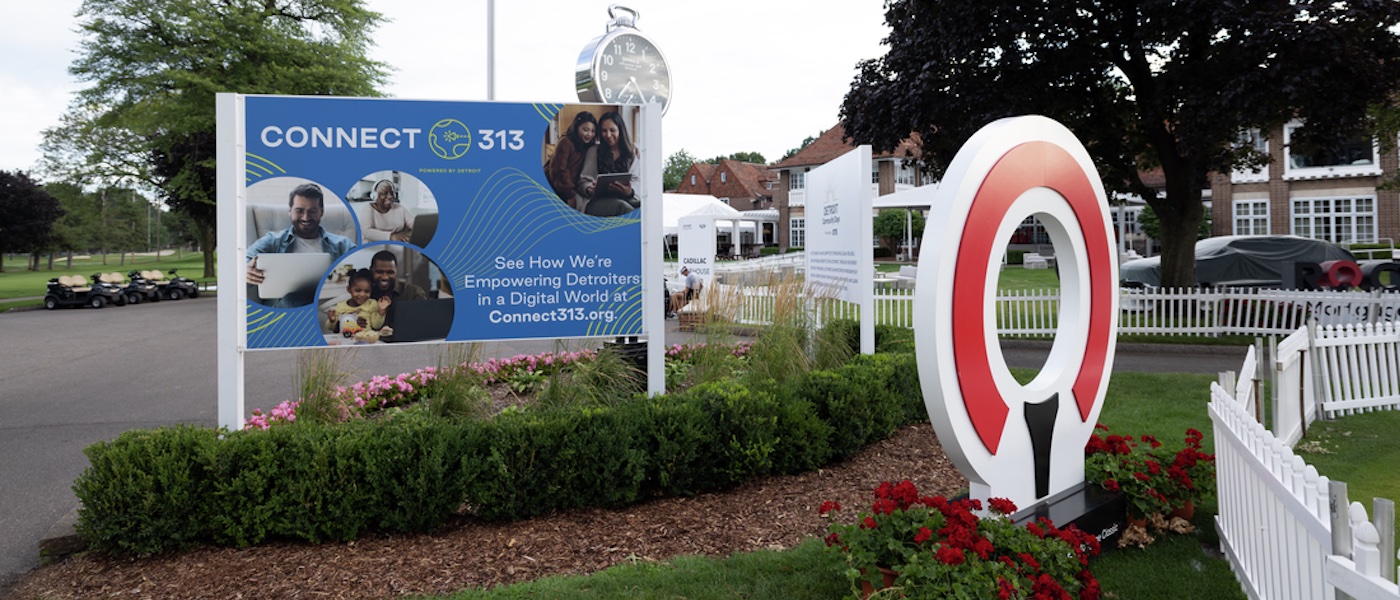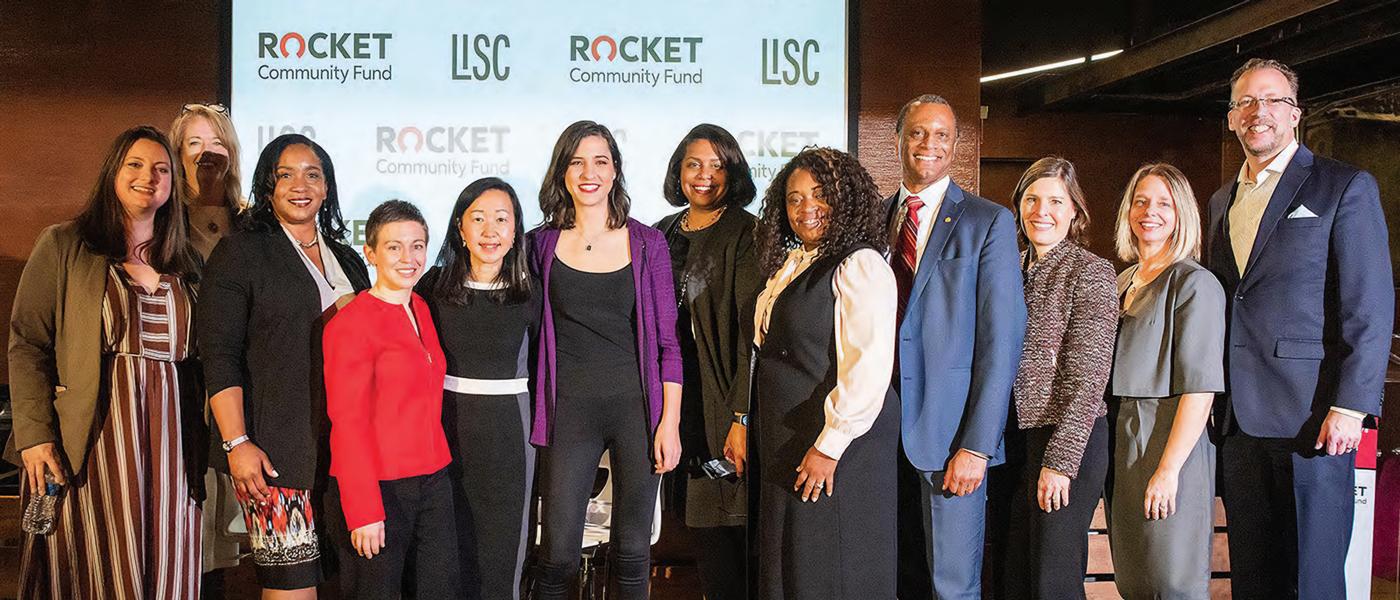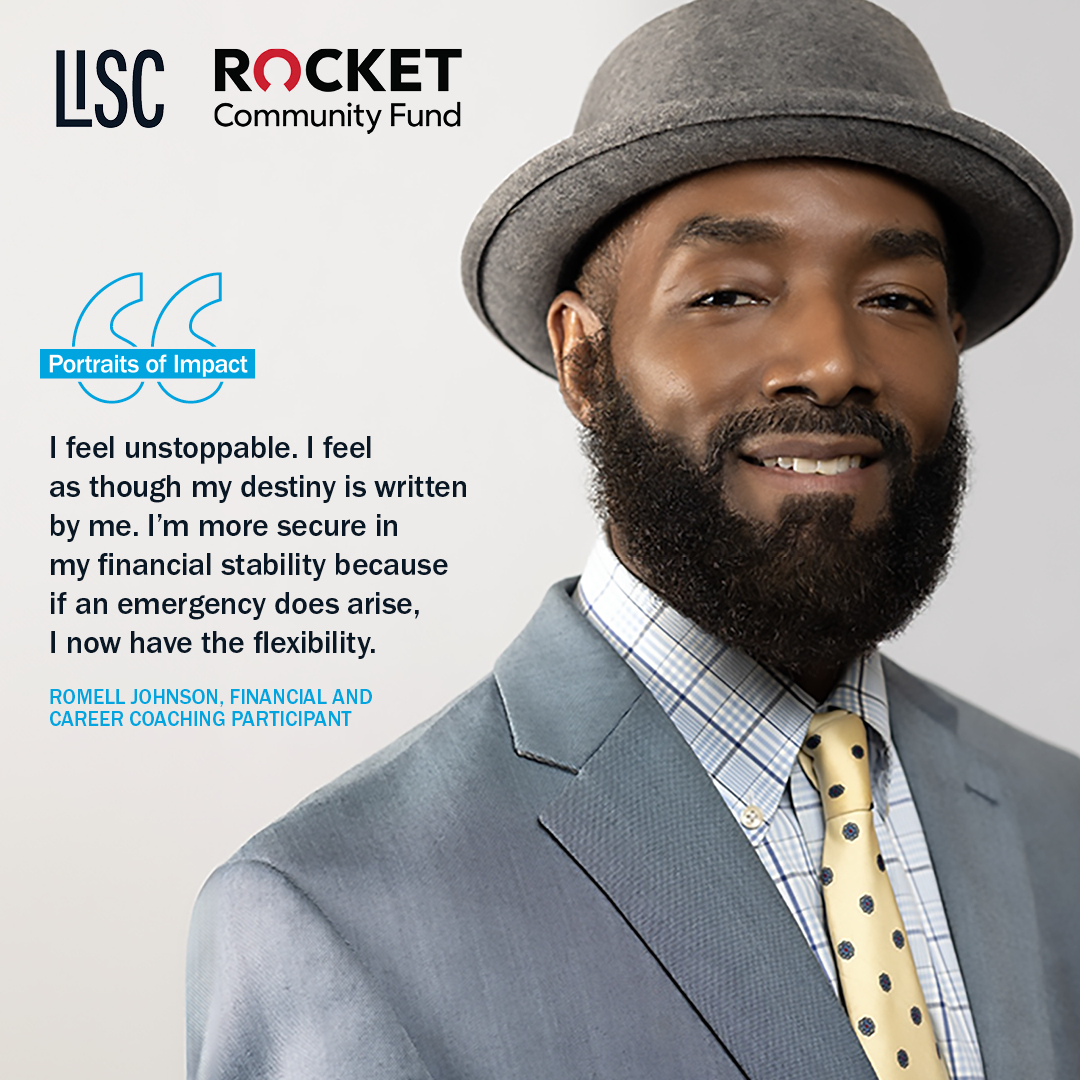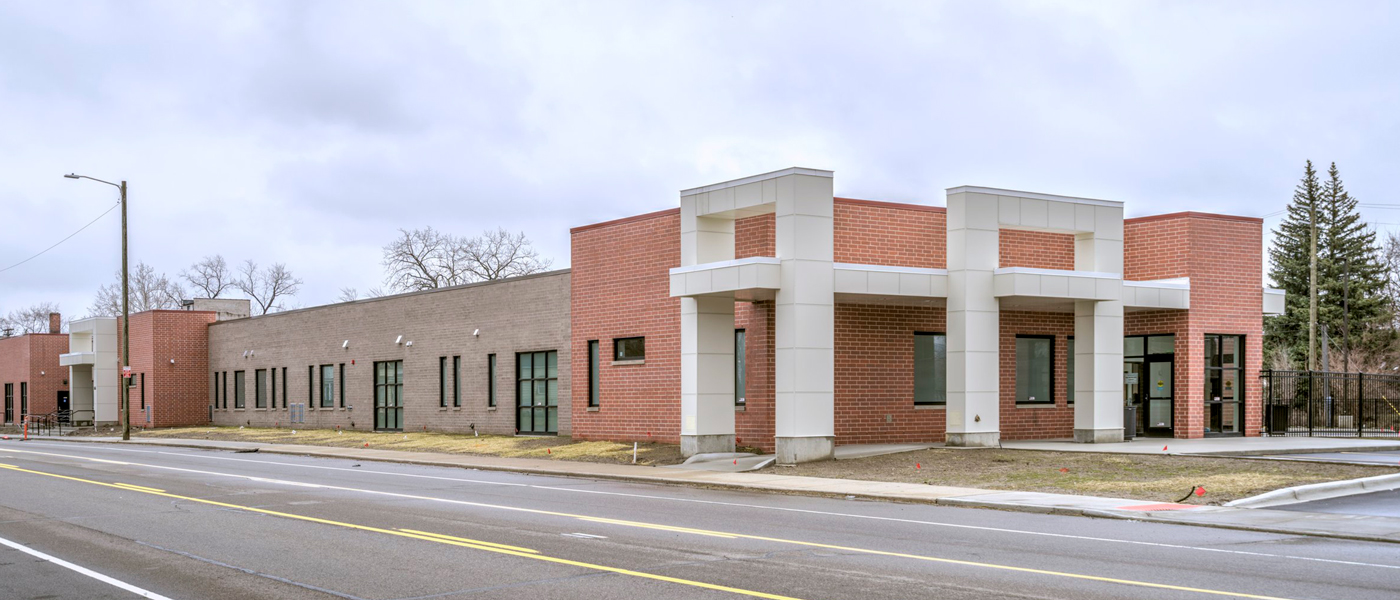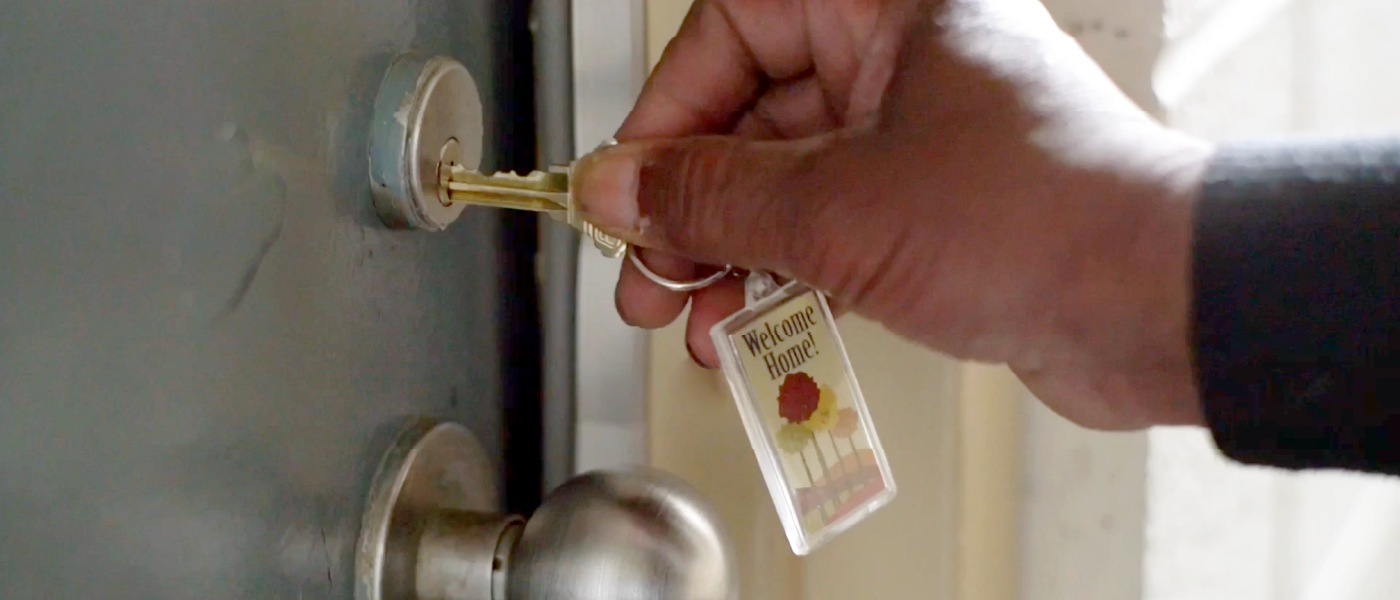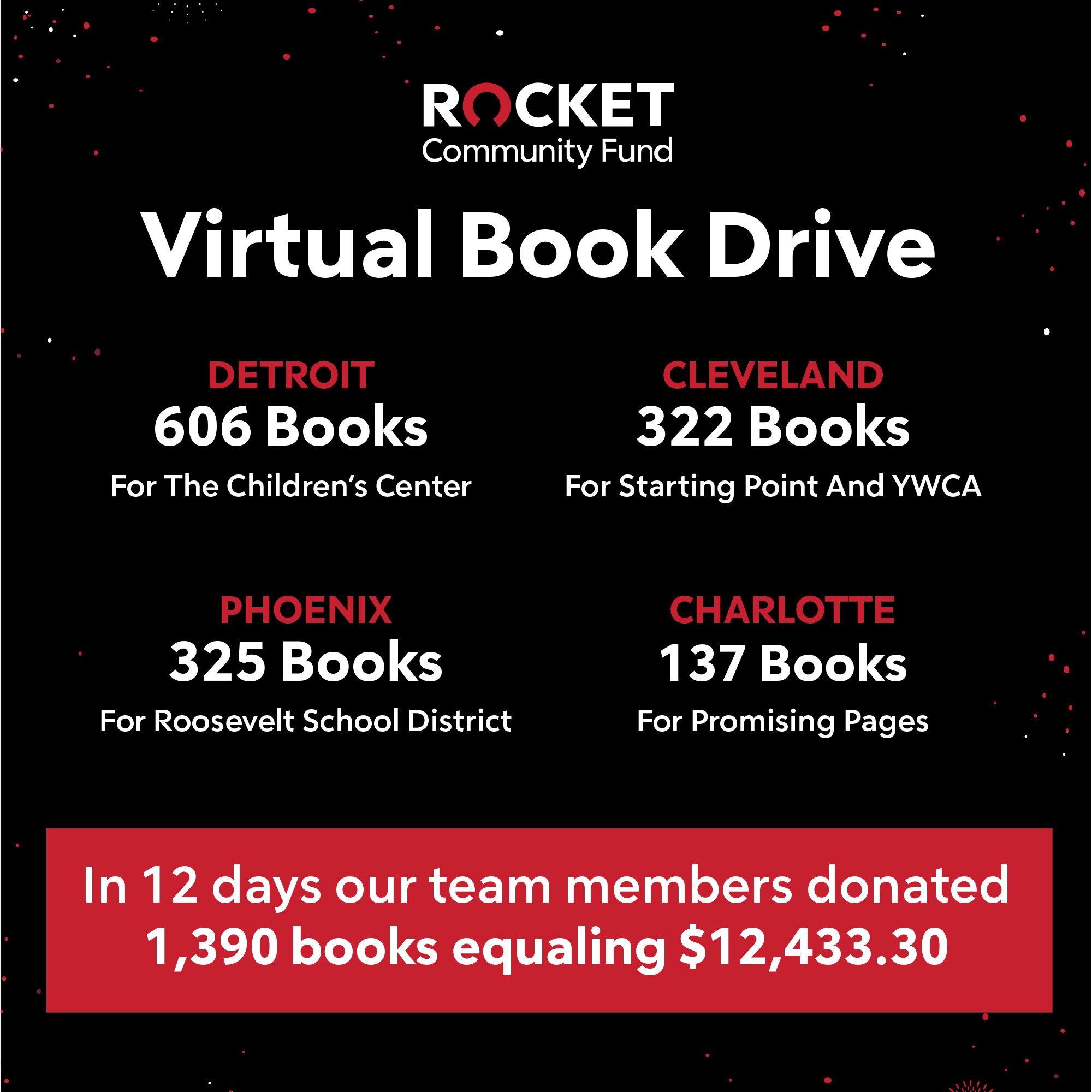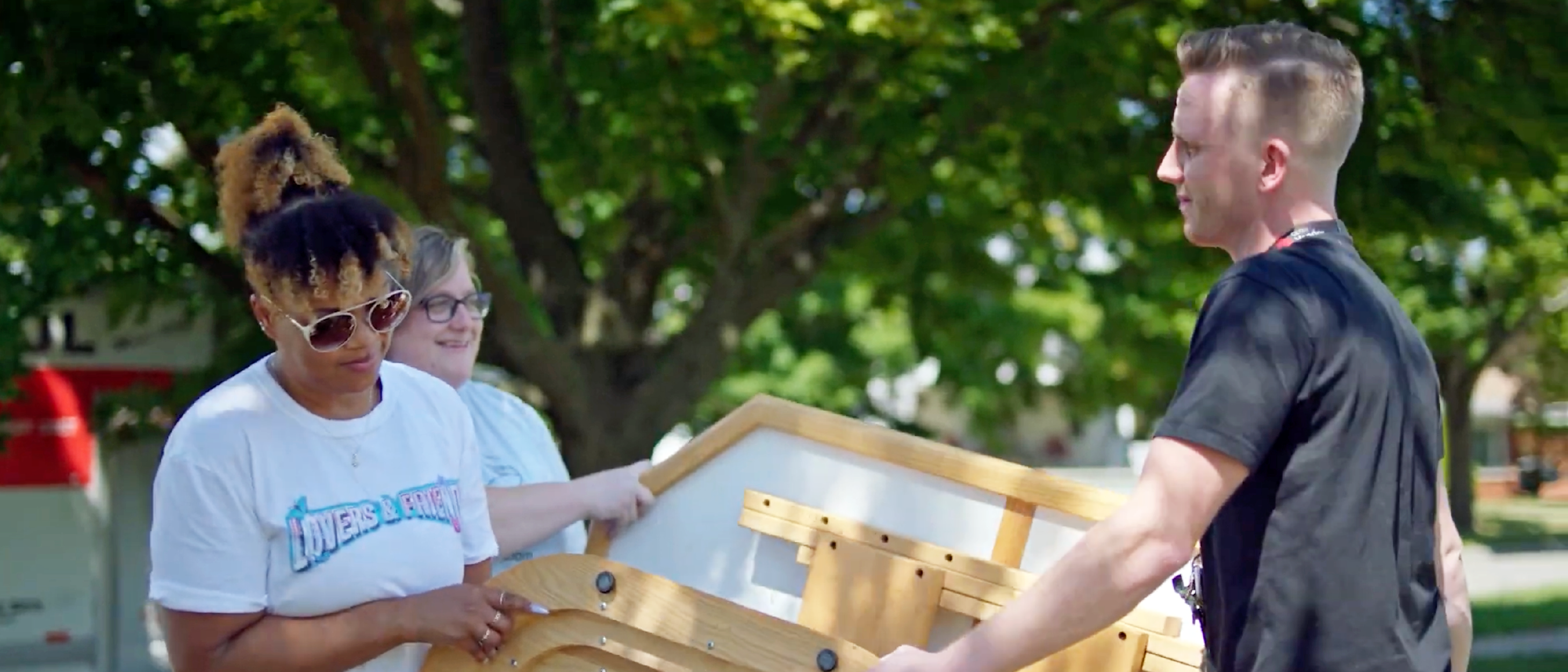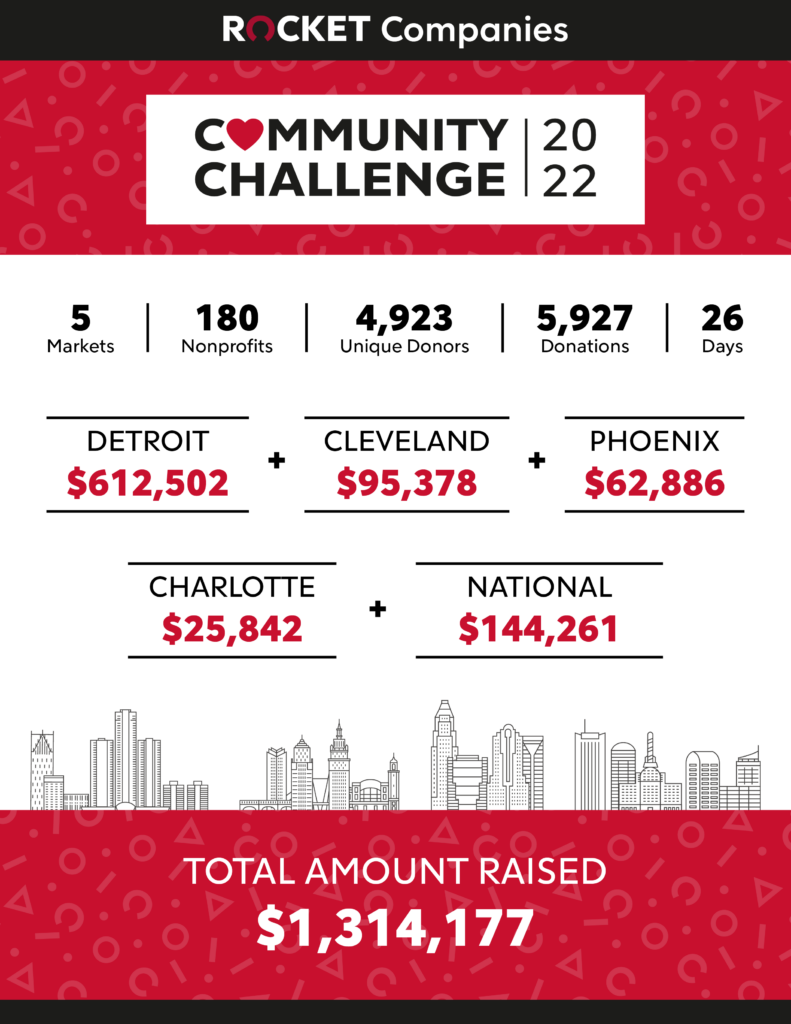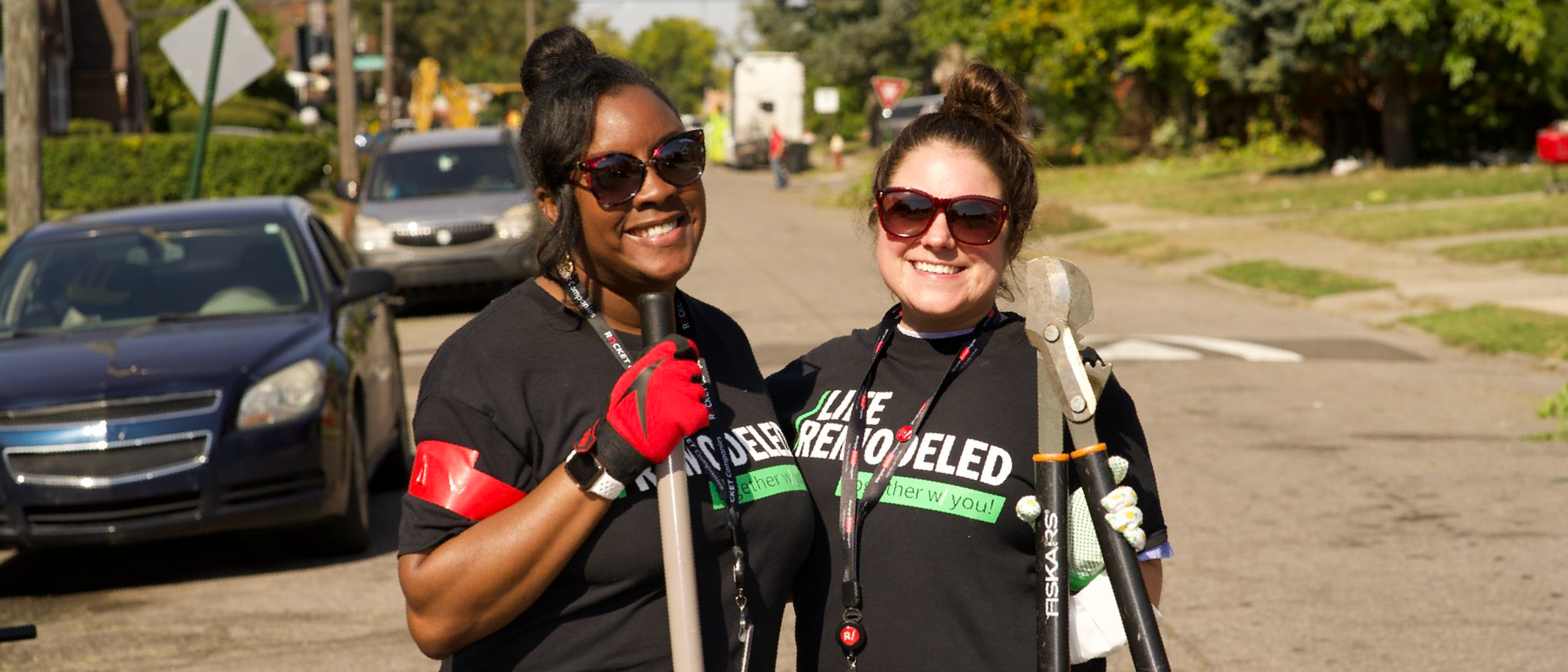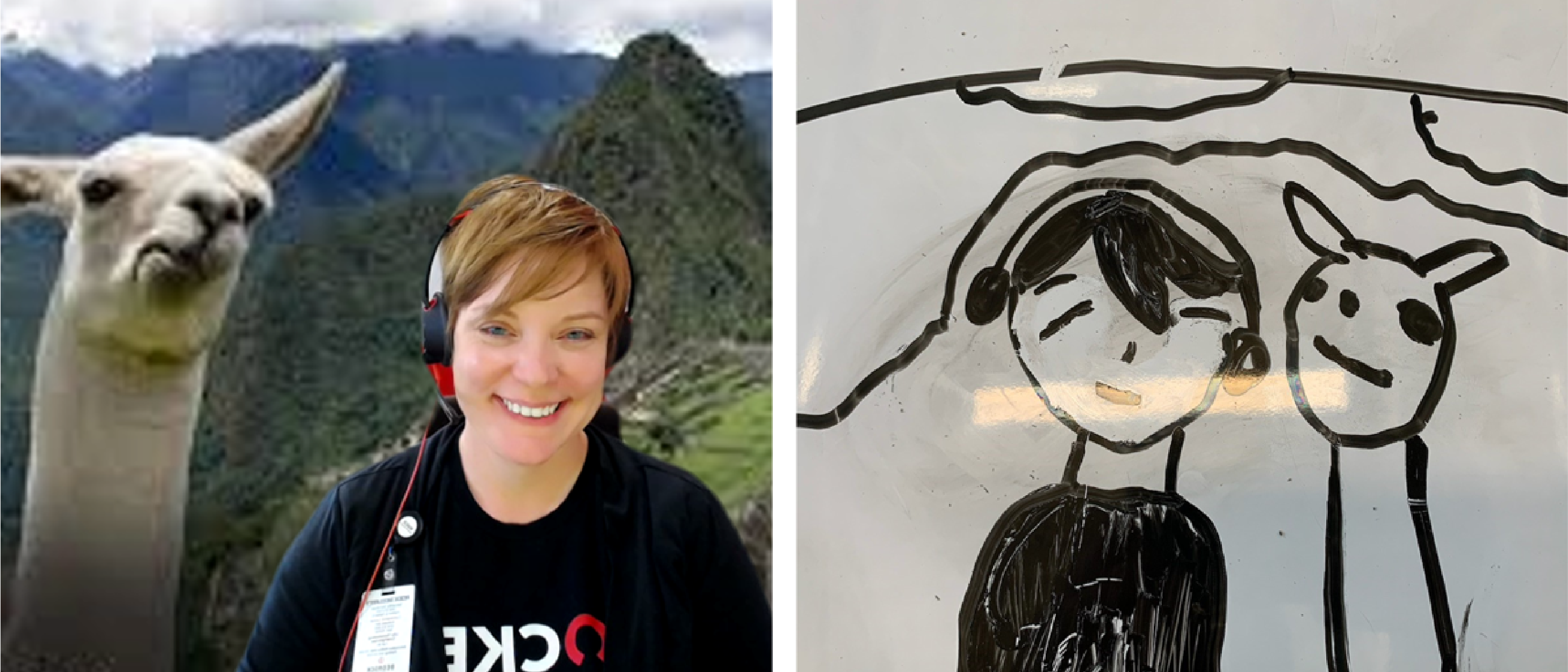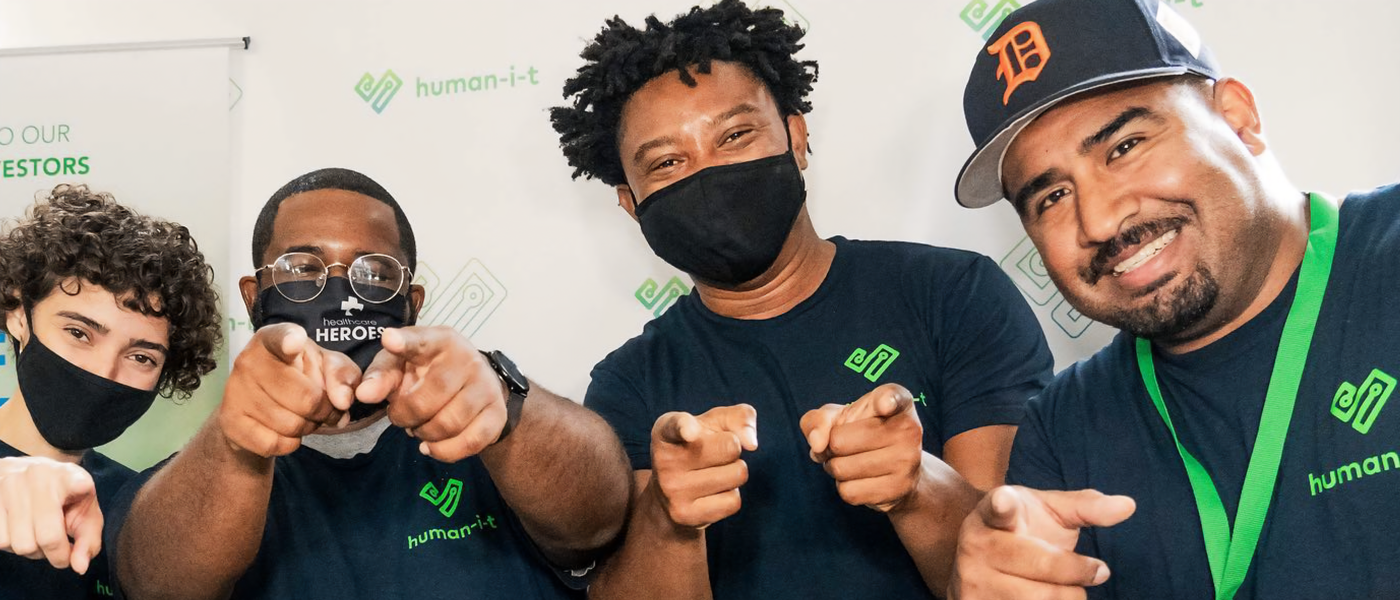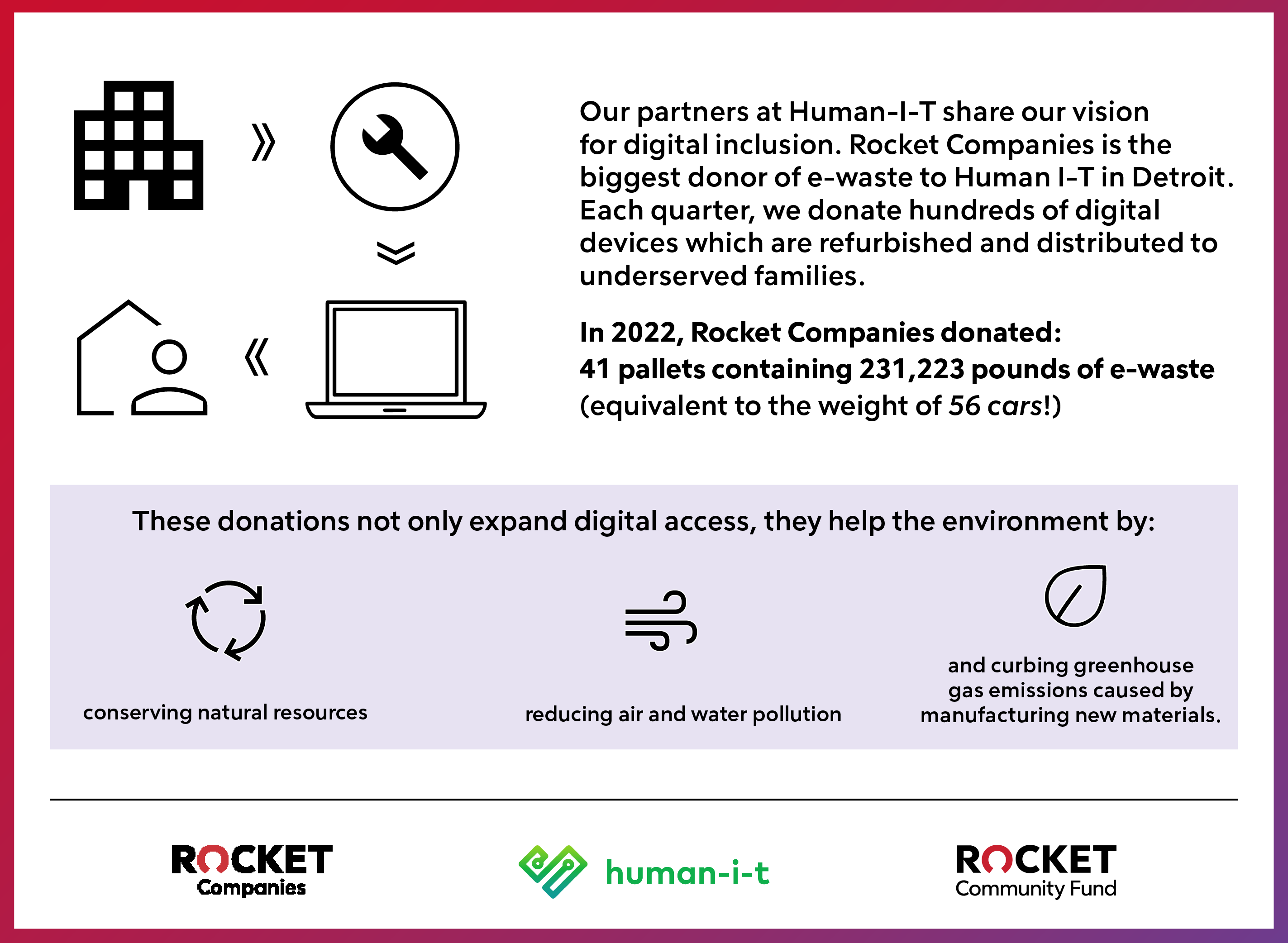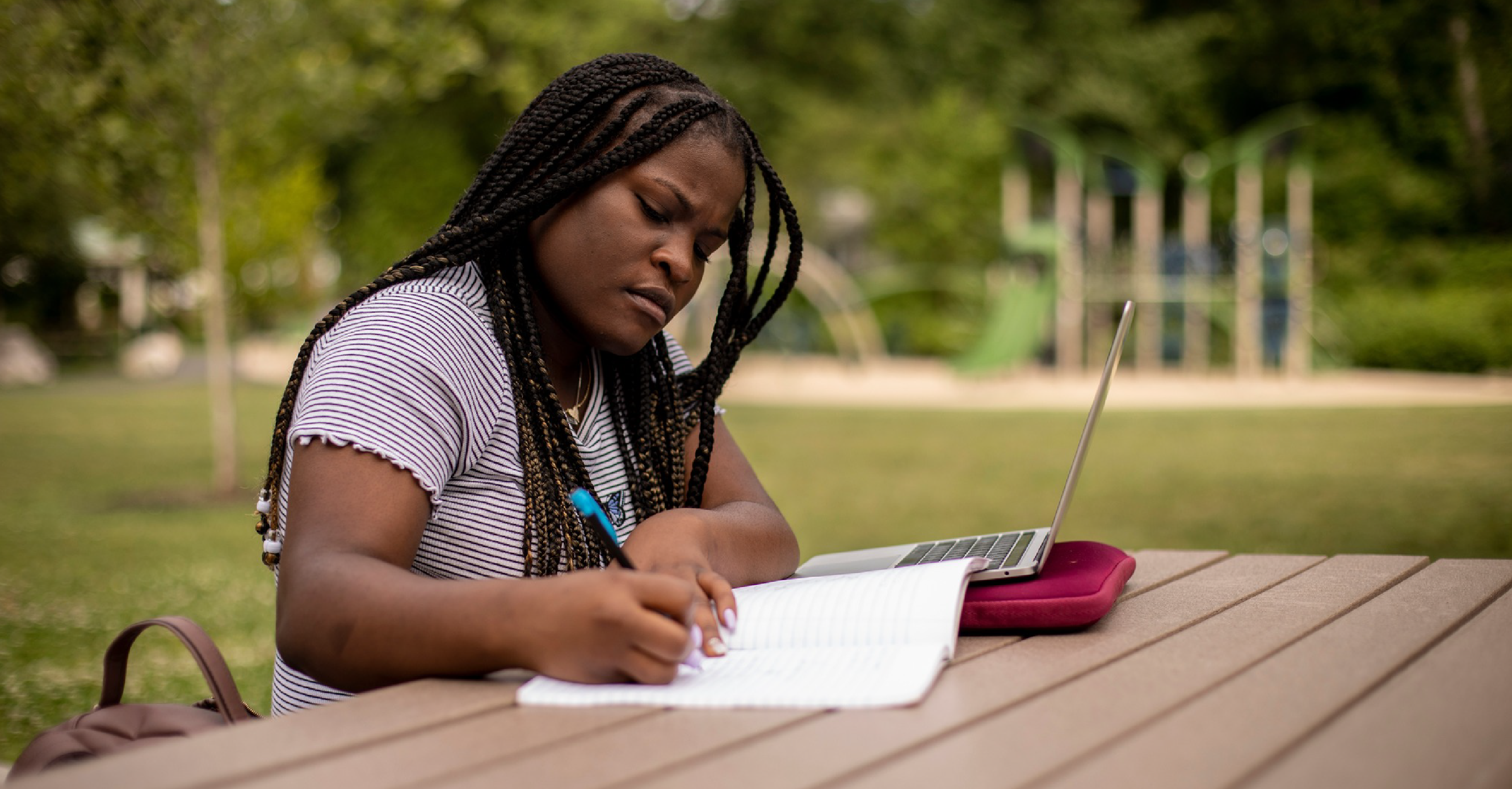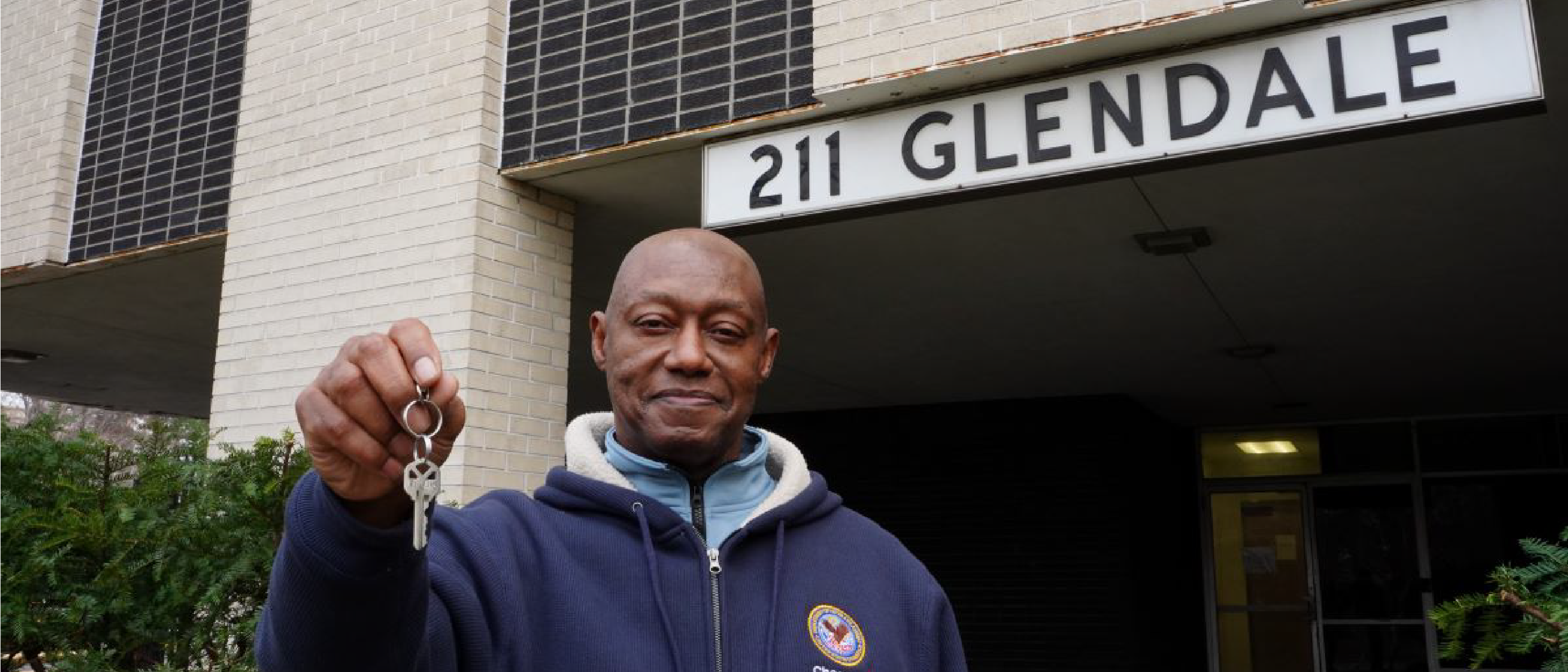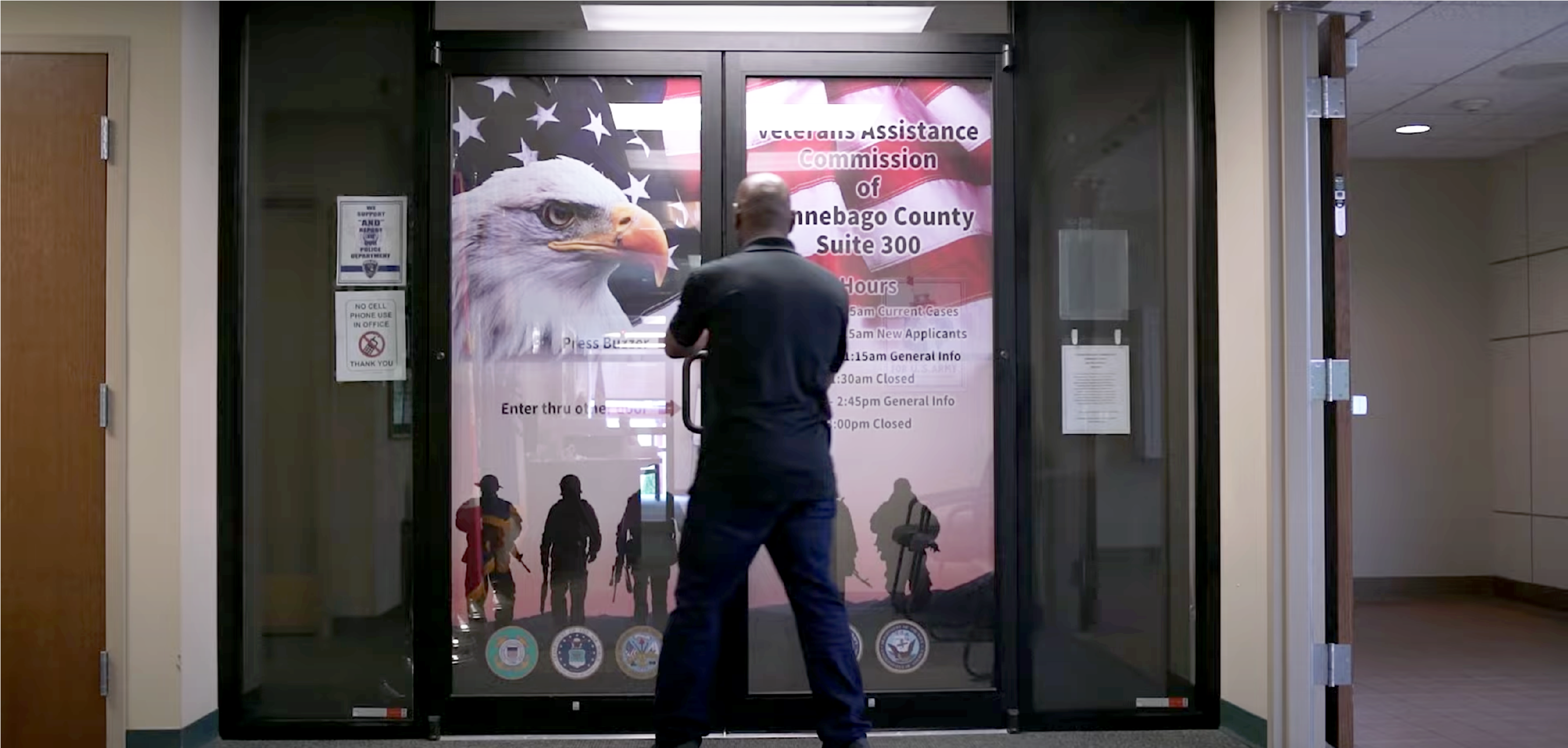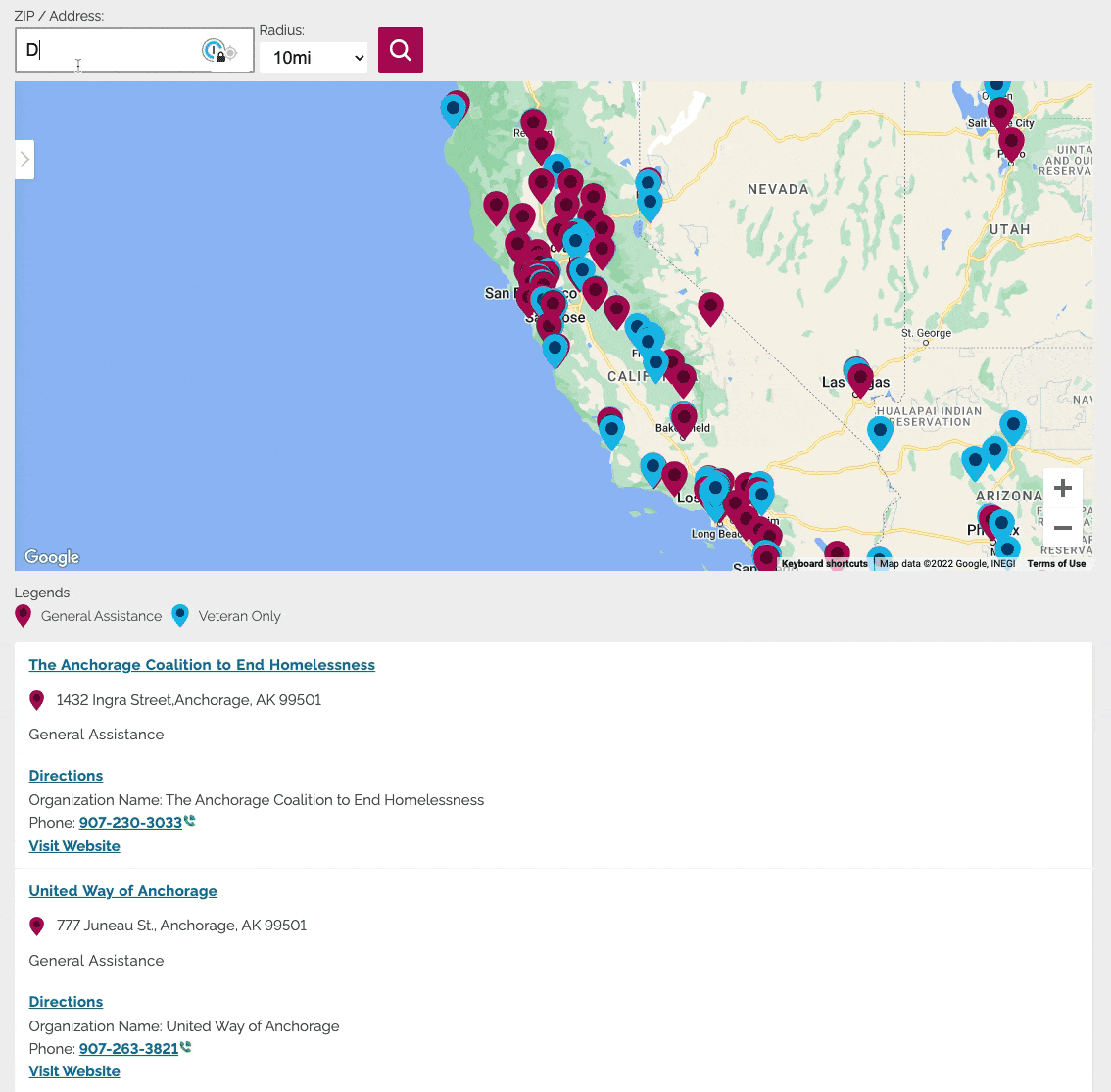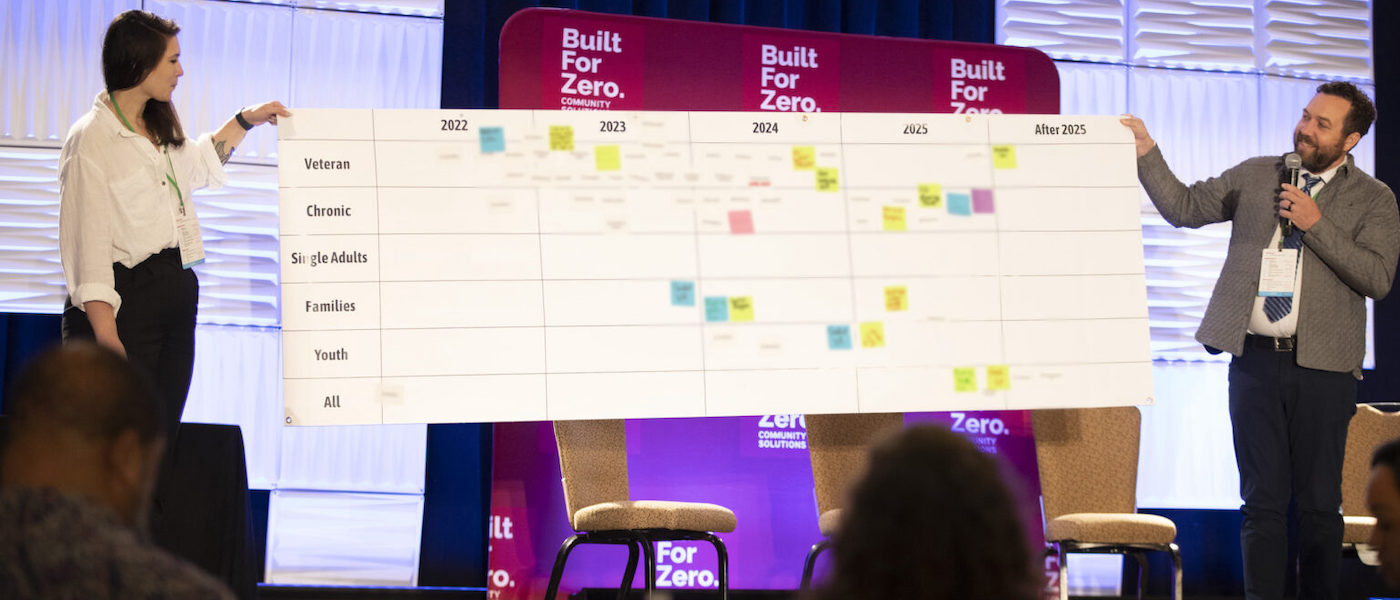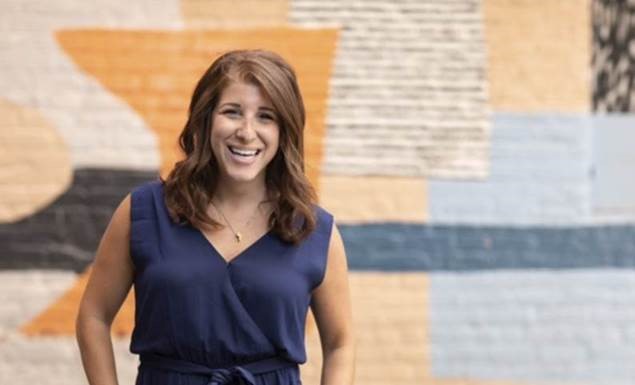
We introduced our 5 Questions series when we interviewed our new Director of Entreprenuership, James Feagin. In this post, we invite you to get to know Jayme Danzig, Director of Education and Employment for the Rocket Community Fund. A fierce advocate for social justice and building equity, Danzig had an integral role in facilitating partnerships and initiatives that support the City of Detroit in bridging the digital divide. Read on to learn more about her work and her recently expanded team.
Rocket Community Fund: What inspires you about the work that you do with Education and Employment?
Jayme Danzig: While I firmly believe that relationships, education, and knowledge are power, our systems aren’t designed to provide equal opportunities for all children.
I first became interested in pursuing this work in high school, a passion which was reinforced early on in my college studies. During my formative years I had several experiences that shed light on the vast inequities of our educational systems in Michigan and across the country.
From age 10 throughout my high school career, I played basketball. I was usually the only white, suburban girl on my travel basketball teams – the majority of my peers and teammates were living Detroit and attending Detroit Public Schools. Good grades were a priority for all of us, but for my Detroit peers, safety and securing post-secondary scholarships were even more pressing issues. Additionally, K-12 schools and other educational institutions in low-income communities were (and continue to be) underfunded. Teachers are also still underpaid, which creates a tornado of challenges in the classroom, especially for students with learning or other disabilities. Essentially, my teammates were dealing with tough, critical issues that I didn’t have to worry about at my school. My teammates and their families became family to me, and at that point, I felt like “my family” was at a severe disadvantage in life – not just for their elementary or teenage years, but for the long-term. Recognizing my privilege enraged me, but it was also the driving force I needed to further understand and explore how I could leverage my privilege to affect change that may help create equity through opportunity.
Understanding those systemic complexities and inequities resonated through my personal relationships and experiences. It’s what inspired me to dedicate my life’s work to reforming our educational and workforce systems that largely and negatively affect low-income and underrepresented learners in much greater volume than all other Americans. It wasn’t until I was in my undergraduate studies when I found my life-long mentor, that I learned more about these systems from various lenses to better position myself to affect change.
RCF: You’ve welcomed two new program managers onto your team recently. Who are they, and what has that experience been like?
JD: During the COVID-19 pandemic, I was able to grow my team, which has been a critical factor in our ability to see success with many of our partnerships and initiatives this year. Onboarding new team members in a virtual environment didn’t come short of challenges, but it also presented unique opportunities to get creative and heighten my organizational and time management skills! Myka Burley, the Program Manager leading our Digital Equity and Inclusion work, and Kinnus Paul, Program Manager leading our Construction and Building trades portfolio, have both been game changers for growing our educational and workforce partnerships. Because of Myka and Kinnus, the Education and Employment team has been able to maximize our impact in these unprecedented times, as students and their families were relegated to remote learning, adults were furloughed or otherwise displaced from their jobs, and many went without food or critical resources needed to sustain their families.
In 2020, my new, kickass team was able to identify some of the most pressing challenges, such as bridging the digital divide. Together, we’re supporting coordinated strategies to connect students and families to devices, internet services, and other critical digital resources. These connections will enhance overall quality of life and provide pathways to new opportunities via access to telehealth, educational resources, employment and financial services, housing services and more. I’m so proud of the work my team has been able to accomplish in such a short period of time, already living our culture and adding value at all levels.
RCF: What is the biggest challenge for the Education and Employment team? How are you working to solve for this?
JD: The challenges that the Education and Employment team faces are rooted in complex racial, social and economic issues that have existed for decades.
Our team is continuously learning from and adapting to these rapidly-evolving issues and identifying levers where we can strengthen or create innovative solutions to address systematic barriers affecting communities like Detroit. What’s more, we’re doing it all virtually. So we need to constantly be thinking outside the box and bringing our obsession for innovation to work every day!
Specifically, school spending has remained stagnant nationally despite an improving economy. And while Michigan Governor Whitmer and the State of Michigan allocated more dollars to education in 2020, there is still a significant budget shortfall for urban and rural districts around the state. Teacher training methodologies have been slow to improve, the school to prison pipeline is very real, and the rate of disconnected youth continues to increase, especially amidst a global crisis. Due to COVID-19, significant learning loss has occurred due to lack of connectivity, digital resources and the remote learning skills to engage in class virtually. Research on chronic absenteeism and on remote learning reinforces the urgency of providing appropriate support to children who are least prepared and especially to those at risk of becoming disengaged and eventually dropping out.
RCF: Despite the pandemic, your team has been able to make real progress in bridging the digital divide. Can you talk a little bit about the initiatives and programs that support this, and why they’re so important?
JD: The digital divide is not new. Low-income, under-resourced communities have been left behind in this space since the inception of the internet. People have been talking about it more because this disparity was exacerbated by the pandemic. Now, the enormity and seriousness of this inequity is irrefutable!
In April of 2020, we made a $2M investment along with the Gilbert Family Foundation to the Connected Futures initiative, ensuring that Detroit students and their families received a computer tablet and high-speed LTE internet connectivity so they were able to continue their education and access additional online resources.
This work also paved the way for the 2020 Rocket Mortgage Classic PGA tour’s “Changing the Course” initiative which aims to end the digital divide in Detroit by 2024. This is how the Connect 313 Fund came about – developed in partnership with private and nonprofit organizations and rooted in the city’s visionary digital inclusion strategy. In addition to driving this city-wide strategy to bridge the digital divide, the Connect 313 Fund will make investments into Detroit-based nonprofit partners to increase access to technology, internet and digital literacy resources.
I’m super proud of my team for cultivating this giving strategy for the Rocket Mortgage Classic that centers on digital equity and inclusion. We’ve been able to coordinate with an abundance of community stakeholders to build an entire replicable and growing organization that holistically addresses the digital needs of residents. We hope that Connect 313 will serve as a model for digital inclusion for other cities.
RCF: What’s one thing most people don’t know about you?
JD: During the pandemic, my mom and I decided that we needed a new hobby, so we taught ourselves how to make jewelry! We’ve gotten creative with beads, different types of chains and other materials. We’re always on the lookout for cool pendants to use on necklaces, earrings, or bracelets. Another thing about me is that I absolutely hate cilantro with a passion – I can’t even stand to smell it. Finally, I have my real estate license, but I’ve never used it!

